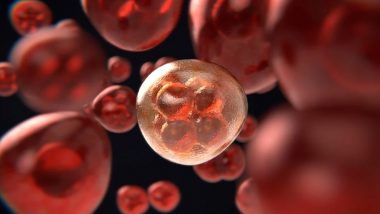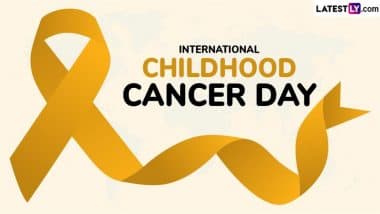Connecticut, October 8: Cancer-related fatigue (CRF) affects patients' quality of life while they are undergoing treatment and is a debilitating yet all-too-common condition. For the constellation of symptoms that make up CRF, there are currently no effective pharmaceutical treatments. In a new study led by Yale Cancer Center researchers at Yale School of Medicine, the team found that a metabolism-targeting drug called dichloroacetate (DCA) helped alleviate CRF in mice, without interfering with cancer treatments. The findings are a pathway for future CRF research that may someday lead to a new therapy for patients. World Dyslexia Day 2023 Date, Significance and How DEPwD Works Towards Raising Awareness About Dyslexia Among the Masses.
The results were published in American Journal of Physiology-Endocrinology and Metabolism on October 2. "This study identifies dichloroacetate, an activator of glucose oxidation, as the first intervention, and particularly the first metabolism-focused intervention, to prevent the whole syndrome of cancer-related fatigue in preclinical models," said senior author Rachel Perry, who is a member of Yale Cancer Center. Researchers used tumour-bearing mouse models to investigate the effectiveness of DCA in treating cancer-related fatigue for patients living with melanoma.
The group found that DCA did not affect the rates of tumour growth or compromise the effectiveness of immunotherapy or chemotherapy in two mouse cancer models. DCA also significantly preserved physical function and motivation in mice with late-stage tumours. World Cerebral Palsy Day 2023: Know Date and Significance of the Day That Raises Awareness About the Neurological Condition.
The data suggests that DCA treatment may have several positive effects, including reducing oxidative stress in muscle tissue of tumour-bearing mice. The researchers said DCA could be a practice-changing approach in the future, when used as an adjuvant therapy to treat cancer-related fatigue.
"We hope that this research will provide the bedrock for future clinical trials using dichloroacetate, an FDA-approved drug for another indication (lactic acidosis) to treat the debilitating syndrome of cancer-related fatigue," said Perry, who is also an assistant professor of medicine (endocrinology) and of cellular and molecular physiology at Yale School of Medicine.
(This is an unedited and auto-generated story from Syndicated News feed, LatestLY Staff may not have modified or edited the content body)













 Quickly
Quickly





















